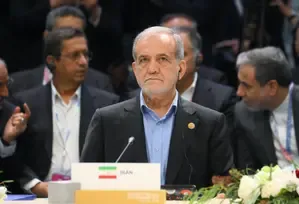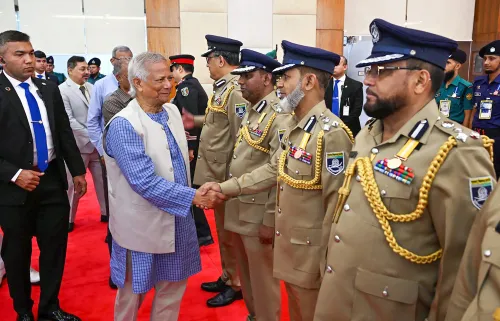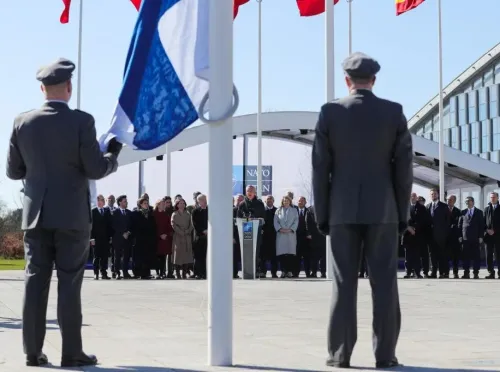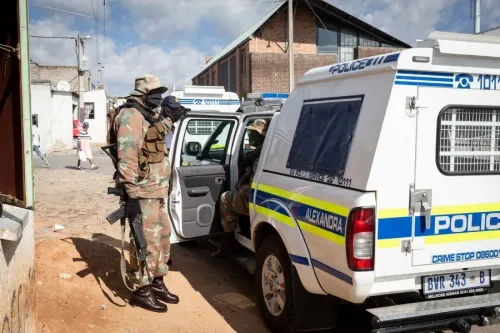How is Iranian President urging vigilance against foreign attempts to harm ties with Armenia?

Synopsis
Key Takeaways
- Importance of vigilance against foreign disruptions in Iran-Armenia ties.
- Successful bilateral discussions during Pezeshkian's visit to Armenia.
- Need to enhance trade and investments between the two nations.
- Concerns over the Nagorno-Karabakh conflict and foreign involvement.
Tehran, Aug 31 (NationPress) Iranian President Masoud Pezeshkian highlighted the importance of both Iran and Armenia to stay alert against any foreign efforts aimed at undermining their strategic and friendly relations.
Pezeshkian made these comments during a meeting in Tehran with Armen Grigoryan, the secretary of Armenia's Security Council, on Saturday. The discussion also focused on enhancing bilateral cooperation, as reported by the Xinhua news agency, referencing a statement from Pezeshkian's office.
Pezeshkian expressed his contentment with the outcomes of his recent visit to Armenia, labeling it as fruitful and successful.
He noted that the trip involved constructive discussions and positive agreements between high-ranking officials from both nations. He emphasized that the clarifications and reassurances provided by Armenian officials during the visit alleviated Iran's concerns regarding recent events in the Caucasus, particularly concerning the presence of foreign forces in the sensitive region after the peace agreement signed between Armenia and Azerbaijan in early August.
“We must act in a manner that prevents any foreign power from disrupting our friendly and strategic relations,” Pezeshkian stressed.
He underscored the importance of promoting trade and expanding joint investments between Iranian and Armenian enterprises to significantly enhance bilateral economic interactions.
Grigoryan, on his part, reaffirmed that the ties between Armenia and Iran are strategic, indicating his country’s willingness to formalize a comprehensive strategic cooperation agreement with Iran.
He emphasized Armenia's readiness to elevate their economic exchanges to a level substantially higher than the current state.
The ongoing tensions between Armenia and Azerbaijan over the contested Nagorno-Karabakh region, which have persisted since 1988, saw a peace agreement signed in Washington on August 8, effectively concluding their prolonged border conflict. This agreement incorporates provisions for the establishment of a transit corridor across southern Armenia, with exclusive developmental rights assigned to the United States.
Iran has consistently expressed concerns regarding the presence of external players in the region and has warned against any attempts to modify the region's geopolitical landscape or historical borders.










